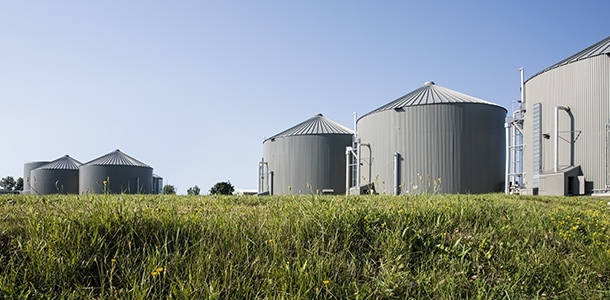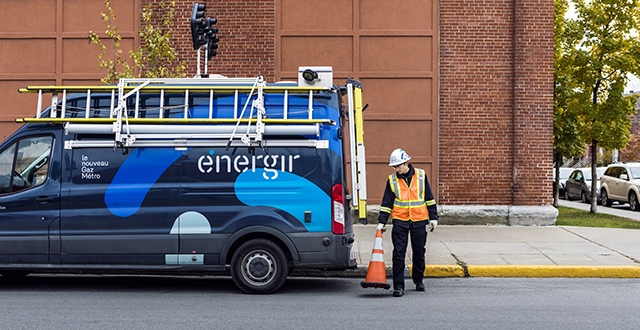Taking action together to implement concrete solutions
Énergir is present in more than 340 municipalities in Québec and is a key ally in their energy transition and economic development. Through our decarbonization solutions or our proactive support for energy projects, such as the development of renewable natural gas production, we are here to advise you and meet your needs.
We also partner with municipalities in managing public spaces for urban infrastructure networks.
Agreements with municipalities
Agreements have been signed with the Union des municipalités du Québec (UMQ) and the Fédération québécoise des municipalités (FMQ) for the management of public spaces for urban infrastructure systems.
Your partner in the energy transition
Québec has set a goal of reducing its GHG emissions by 37.5% by 20301 and Énergir is actively participating in the energy transition through solutions such as energy efficiency, dual-energy and renewable natural gas.
By reducing the volume of distributed fossil natural gas and injecting an increasing volume of 100% renewable gas into our network2, by promoting complementarity between electricity and natural gas, as well as by supporting projects that reduce energy consumption, Énergir plays a key role in addressing the climate, economic and social issues facing municipalities and Québec.
Decarbonizing buildings: A common goal
Énergir aims to reduce the GHG emissions associated with energy distributed in buildings by 30% by 2030, and to reduce the volumes of natural gas in the gas network by half by 2050 with the goal of decarbonizing the distributed energy.

Three solutions to reduce your carbon footprint
Énergir offers three decarbonization solutions that can be implemented individually or jointly to help you optimize your energy use and costs while reducing your GHG emissions.

Looking for a site suitable for renewable natural gas production?
We mapped the federal census of agriculture (2021) to help developers position their projects at the centre of organic deposits and close to our network.
Safety and prevention
Natural gas is a safe energy source. However, it’s important to follow basic safety measures and maintain the equipment properly. At Énergir, the network is monitored 24 hours a day, 365 days a year. Over half of our employees work on activities related to planning, maintaining, repairing and developing the gas distribution system. These experts have a single focus—ensuring a reliable, uninterrupted, safe supply of natural gas.

Legal notes
1Compared to 1990 levels (Plan for a Green Economy).
25% by Energir fiscal year 2025-2026 and 10% by Energir fiscal year 2030-20231, in accordance with a regulatory obligation.

